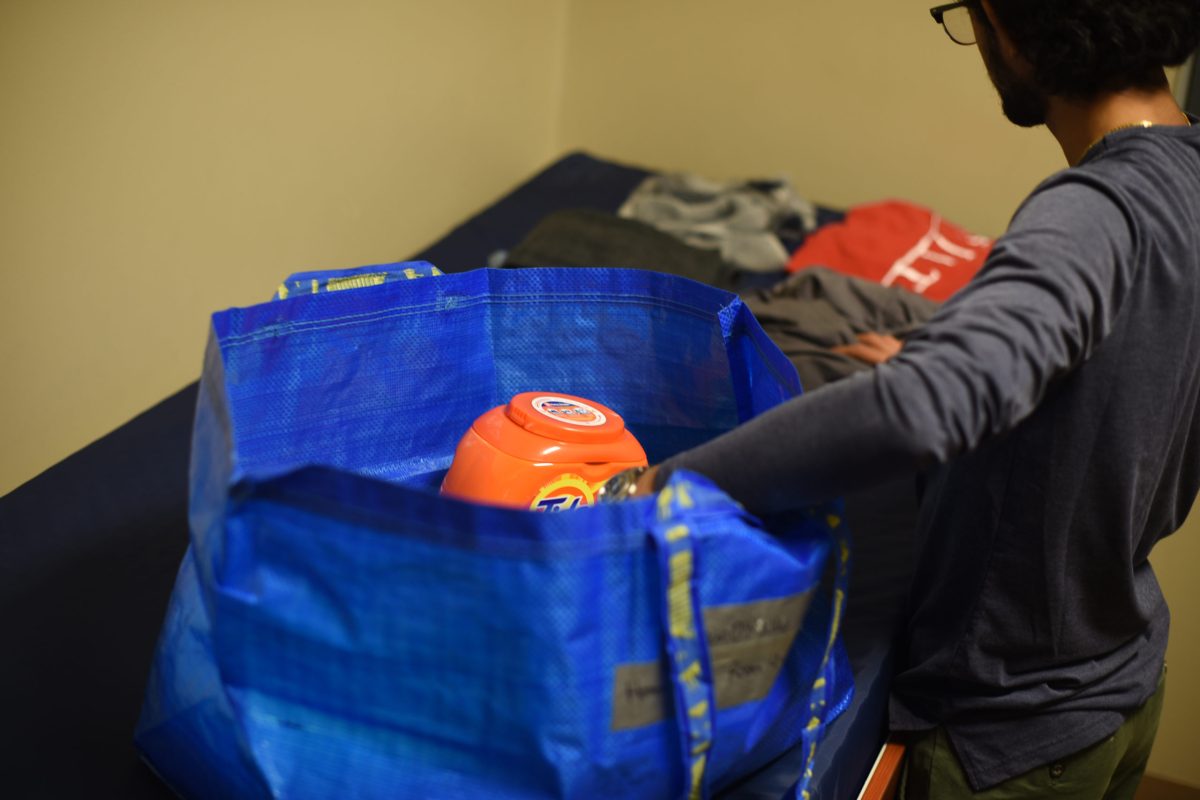This past fall semester, testing restrictions and guidelines amped up disproportionately for courses in the math department. Professor and department chair of NJIT’s math department Eliza Michalopoulou explained that proctoring and testing practices implemented in Fall 2020 were as a result of Honor Code violations in Spring 2020.
One of the expectations includes utilizing Respondus Lockdown Browser to open and take the exam, which records audio and video from the computer’s microphone and camera. At the start of opening the test, there is an environment check that tells students to pan their camera so that authorities can see that there are no notes, devices, or other prohibited items in the students’ reach. A second device, usually the student’s phone, is placed on the side and logged onto the class’s Webex meeting provided by the professor. Rather than showing the students’ faces like the computer camera does, this provides a view of the students’ two hands and computer, which must stay seen at all times. Another requirement includes having exam questions given one at a time, and not allowing students the opportunity to go back to any previously answered questions; once an answer is submitted and the student proceeds to the next question, no modifications can be made. Scratch paper is permitted, but only certain courses require students to upload their work immediately after submitting the exam.
However, many students across departments do not agree with the implemented policies. Some say the double-camera policy feels unnecessarily intrusive, that not being allowed to revisit completed problems creates unencountered stress, and that the department’s expectation for cheating has made it more difficult for students to complete core math classes fairly. At the time that the Vector had reached out to the math department for comment, they did not make a comment at the time as they had not yet made final decisions on this semester’s policies nor completed an analysis of results from the fall semester, such as final grade distributions and curve distributions.
Emma Hamza, a second year chemical engineering major, highlighted the difference in the testing between the Spring 2020 and Fall 2020 semesters. In Spring 2020, when Hamza took Calculus 3A, she said “we just had to use the Respondus Lockdown Browser with our laptop camera on us.” In her fall Differential Equations class, she reasoned, “I can kind of understand having the second camera since in person, proctors would be able to see your whole body anyway.”
This, however, does not sit well with first year computer science major Zoe Coughlan, who called the second camera inappropriate. “It’s invasive for everyone, but for female students in particular, it’s difficult to angle the camera in a way that shows the hands, calculator, and scratch paper without also giving a view of the student’s chest,” she pointed out. “For some students, that’s very uncomfortable, especially because our classmates can see our cameras through the Webex call as well.” She consequently set up a method to hang her phone from a stand to make the camera focus more on her desk rather than her body.
The restriction on going back to previously answered questions is one of the most pressing concerns for students. “I was not able to check over my answers and had no way of knowing the difficulty level of all the questions to prioritize which to spend more or less time on, which is what I would normally do,” said Hamza. “It seemed like a very unnecessary measure, and I’m not sure how someone could have cheated using other questions.”
Despite that, third year mathematical sciences major Dhaduk recognized the issue and reasoned, “In cases of cheating in which one student sends their answers to another who is not done with their exam yet, not allowing students from going back to previous questions may prevent them from entering someone else’s answers after they have moved on.” However, he believes that this measure still does more harm than good, referring to a commonly taught test-taking strategy: “a later question may remind students how to solve a previous problem, and this allows students to answer all the questions that they know how to solve before spending the rest of their time solving the ones they don’t know.”
Coughlan has not voiced her matters to any authority, as she is not sure about whom to speak with and she worries about being laughed at for how minor her concerns may be viewed as. Hamza mentioned, “I did not get the chance to express my concerns to any higher authorities, but my professor made it clear that the department would not even consider making any changes.” Similarly, Dhaduk noted, “during classes various students have asked professors to remove some of these rules, specifically the one about not being able to go back to previous questions. Each time these professors have declined to make changes to their rules.”
He also offered a suggestion that would best mimic regular face-to-face exams: “If it were up to me, I would require all of the math classes to use Respondus and leave using the phone as a second video up to the professor’s discretion. I would allow students to view all of the questions at once as would be done on an in-person exam. While we understand the concern, the measures the department take shouldn’t come at a detriment to a student’s ability to take the test.”
The new regulations have caused some students to alter their study habits and spend more time studying, as Hamza said she did. Regarding her first exam in the fall, she said, “I definitely lost some points from not being able to go over my work. I also did not score well on the final, as they changed the format and covered material we were not taught and did not give us notice for either.”
This happens to be a similar situation as that of another student, who wishes to remain anonymous. Performing very well on their common exams and class assignments, they were appalled to see the exceedingly difficult final exam that happened to be in a completely different format than the previous tests. This had apparently happened in response to high test scores from the common exams, which was reasoned to have come from test takers cheating. This honors student criticized the exorbitant amount of cheating that still occurred and talked about how they were almost dragged into a cheating incident themselves. They described the circumstance as “if we don’t cheat, then we’re behind the ball,” implying that dishonesty was the only way to score decently on the exams.
After posting about the final exam issue on social media, the anonymous student received responses from others who had the same thing happen: an unreasonably low grade on the final exam that deeply affected their final grades. The individual who was interviewed recognized that this can truly harm a student’s path to earning their degree and a student’s financial status; if someone did not get a C or higher, they would have to retake the course and spend extra money on something that was dependent on cheaters and not themselves.
The student even stated that this was seriously impacting their decision on taking a necessary math course at another institution in order to avoid all the deception. They did not feel confident that the NJIT math department would be handling the courses at NJIT correctly, conveying that in some ways, coordinators were anticipating cheating and made tests, such as the student’s final exam, more difficult for everyone as a result, hurting those that genuinely work hard to earn their grade.
Dhaduk expressed that “The biggest issue that I have is not what rules the math department has put in place but rather that the difference in rules between the math department against all the other departments. To my knowledge, none of the other departments have set rules that are nearly as harsh, and it is this discrepancy that is unfair to the math majors. The fact that NJIT has not set college-wide testing rules annoys me.”





































